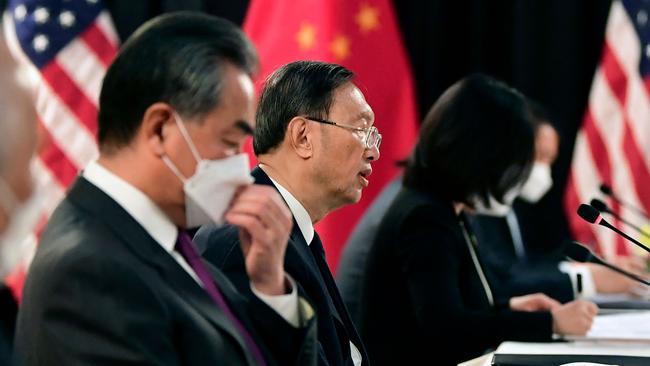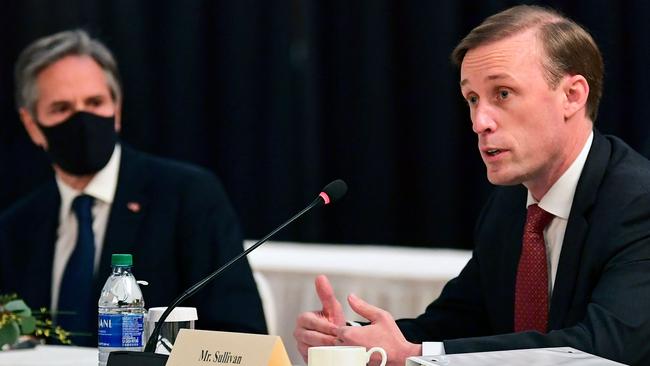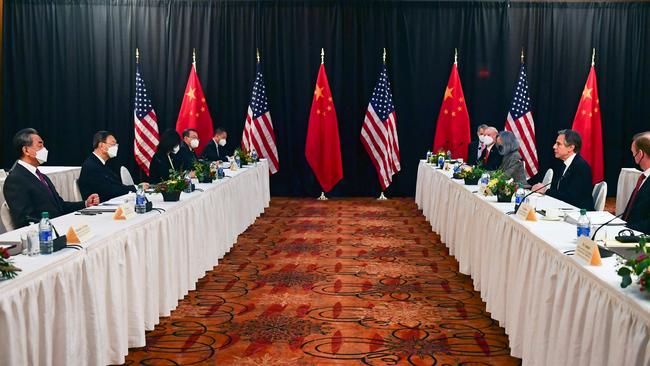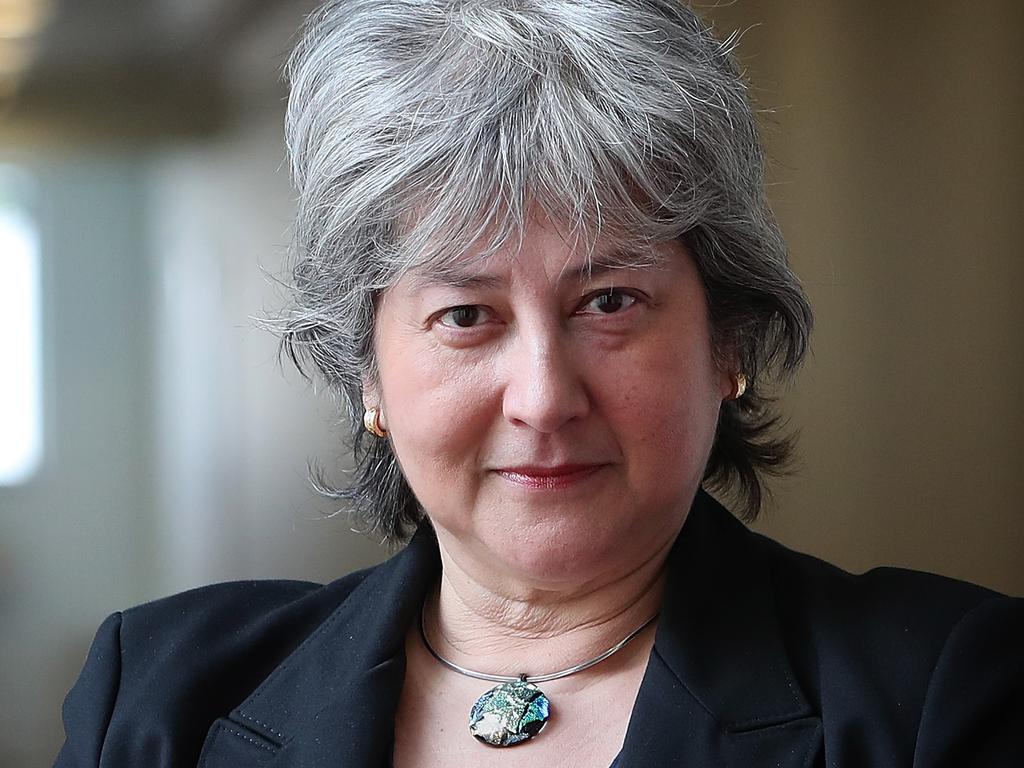US-China talks in Alaska get off to icy start amid ‘grandstanding’ claims
President Xi’s most senior foreign affairs adviser started crucial talks with an extraordinary 15-minute anti-US tirade.

Chinese President Xi Jinping’s most senior foreign affairs adviser began a high-level meeting with the Biden administration in Alaska with an extraordinary 15-minute tirade against America, underlining the deep distrust between the world’s two most powerful countries.
The ferocious speech by Mr Xi’s top diplomat Yang Jiechi demonstrated Beijing’s increasing self-confidence and suggested the US-China bilateral relationship will remain at the 50 year lows it descended to during the Trump presidency.
“Let me say here that in front of the Chinese side, the United States does not have the qualification to say that it wants to speak to China from a position of strength,” said Mr Yang in a speech that stunned his American counterparts and the small assembly of media.
“...the U.S. side was not even qualified to say such things, even 20 years or 30 years back, because this is not the way to deal with the Chinese people...”
Soon after, a senior Biden administration official said the 15-minute speech — which criticised America’s democracy, treatment of minorities, and foreign and trade policies — “violated” the meeting’s agreed protocol. The speakers had agreed to speak for 2 minutes each.

“The Chinese delegation ... seems to have arrived intent on grandstanding, focused on public theatrics and dramatics over substance,” the official said.
Speaking earlier at the opening of the tone-setting two-day meeting, US Secretary of State Antony Blinken said China’s actions “threaten the rules-based order that maintains global stability”.
Mr Blinken said during the two day meeting, the US side would “discuss our deep concerns with actions by China, including Xinjiang”, along with American concerns about Hong Kong, Taiwan, cyber attacks on the United States and “economic coercion toward our allies”.

President Joe Biden’s National Security Adviser Jake Sullivan added that the US did not want conflict with China but welcomed tough competition with its strategic rival.
“And we will always stand up for our principles for our people, and for our friends,” Mr Sullivan said.
The response by the Chinese Communist Party’s top diplomat — who was accompanied by Foreign Minister Wang Yi — revealed the Xi administration’s fury at America’s behaviour ahead of the summit.
This week Mr Blinken and Defence Secretary Lloyd Austin visited Japan and South Korea to demonstrate its commitment to its alliance network, while a senior Biden official said Beijing had to stop its economic coercion of Australia if it wanted to improve relations with Washington.
And on Wednesday, the U.S. imposed sanctions on 24 senior Chinese and Hong Kong government officials accused of undermining the former British colony’s political system.
At a briefing in Washington, senior Biden officials were unusually direct about their tactics.
“We are coming in (to the meeting in Alaska) with what we feel is an … increasingly strong hand,” said an official at the briefing.
In his Anchorage speech, Mr Yang asked whether the new Hong Kong sanctions were announced ahead of the meeting on purpose.

“I think we thought too well of the United States. We thought that the U.S. side would follow the necessary diplomatic protocols,” he said.
Mr Wang told the US side it was “no way to treat your guests”.
Beijing also engaged in signalling ahead of the meeting, this week scheduling the trials of two Canadians detained for more than two years on Friday, the first day of the Alaska summit, and immediately after it on Monday.
The Canadian government believes the pair — businessman Michael Spavor and former diplomat Michael Kovrig — are political hostages. They were detained in China less than a fortnight after Huawei chief financial officer Meng Wanzhou was detained in Vancouver, following an extradition request by America.
Former Prime Minister Kevin Rudd said — however limited the areas of agreement — the talks were important for allowing America to relay information to China’s powerful leader.
“Most of Xi’s senior officials are terrified of him. They are highly unlikely therefore to be providing frank and fearless advice internally,” said Mr Rudd, president of the Asia Society think tank, in a speech given as the Alaska meeting was underway.
“Under these circumstances it’s critical that Chinese intermediaries are able to convey accurately and concisely messages they are receiving from their American counterparts directly to China’s paramount leader himself,” he said.








To join the conversation, please log in. Don't have an account? Register
Join the conversation, you are commenting as Logout